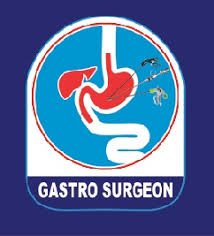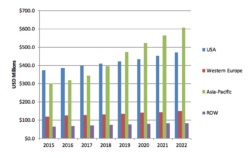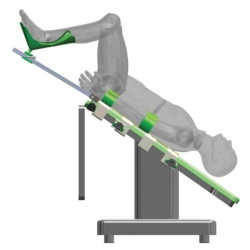Effects of Emotional And Stress Eating On Obesity
New understanding of the stress and emotional eating mechanism reveals that bariatric surgeries aren't the real solution to the obese. Actually, a non-surgical Gastric Bypass ALTERNATIVE may provide a better weight reduction solution than gastric bypass, LapBand or gastric sleeve.

Press Release (ePRNews.com) - MONTVERDE, Fla. - Jun 18, 2017 - Effects of Emotional And Stress Eating On Obesity
Authors: Don Karl Juravin (inventor of the Gastric Bypass ALTERNATIVE regimen), Marcus Free MD, Rouzbeh Motiei-Langroudi MD (Harvard medical school), Waqar Ahmad PhD, Kelly Daly
New understanding of the stress and emotional eating mechanism reveals that bariatric surgeries aren’t the real solution to the obese. Actually, a non-surgical Gastric Bypass ALTERNATIVE may provide a better weight reduction solution than gastric bypass, LapBand or gastric sleeve.
Stress is a condition in which “environmental demands exceed the adaptive capacity of an organism, resulting in psychological and biological changes which may increase risk for disease” (Cohen 1997).
Abstract (research summary)
The mechanism in which stress causes overeating is a combination of behavioral changes in appetite, surges in cortisol and decreases in serotonin stimulating the brain reward system and resulting in suppressed insulin and increased ghrelin. This potent combination of hormonal and chemical changes result in the uncontrollable urge for unhealthy foods when stressed and/or emotional.
> Stress results in uncontrolled and emotional eating and is associated with increased consumption of highly palatable foods (Groesz 2012, Oliver 1999), finally resulting in weight gain (Järvelä-Reijonen 2016).
> Acute stress leads to consumption of an additional 151 calories per day (Torres 2007), leading to a weight gain of up to 330g per week, or 17 kg (37 lbs) per year.
> Stress stimulates hypothalamic-pituitary-adrenal (HPA) axis, resulting in excess glucocorticoids (Adam 2007), increased appetite, gluconeogenesis, hyperphagia and food intake (Gluck 2006).
> HPA axis stimulation interacts with brain reward pathways to motivate intake of high-calorie food through a release of opioids in stressful conditions (Adam 2007).
> Stress suppresses insulin secretion (Peters 2010) and increases ghrelin levels (Labarthe 2014) resulting in increased food consumption.
> Decreased serotonin levels induce stress and stress eating (Capello 2014, Markus 2012, Corwin 2011).
> Green Camellia Sinensis (200mg to 500mg daily) reduces stress eating (Mirza 2013).
> Ashwagandha root extract (300mg twice daily) reduces stress and stress eating (Choudhary 2016).
> Tryptophan reduces stress-induced increase in appetite and stress eating (Capello 2014, Amer 2004).
Emotional And Stress Eating Related to Obesity
Stress causes emotional and uncontrolled eating and increases food cravings, resulting in higher intake of sugar and fat leading to consumption of an additional 151 calories per day. This results in weight gain of up to 17kg (37 lbs) per year.
Acute and chronic stress is associated with greater preference for foods rich in sugar and fat, resulting in weight gain. Acute stress leads to consumption of an additional 151 calories per day (Torres 2007), leading to weight gain of up to 330g per week, or 17 kg (37 lbs) per year.
> Stress-related eating (aka emotional eating, stress eating) causes obesity (Järvelä-Reijonen 2016).
> Stress results in uncontrolled eating, emotional eating and decreased cognitive restraint to eating, finally resulting in weight gain (Järvelä-Reijonen 2016).
> Chronic stress is associated with more uncontrolled and emotional eating (Groesz 2012, Nevanperä 2012), resulting in intake of unhealthy dietary, highly palatable and high-fat foods and a higher BMI (Konttinen 2010, Nevanperä 2012, Groesz 2012, Oliver 1999, Barrington 2014).
> The rewarding aspects of food consumption are regulated by brain circuits. Stress also contributes substantially to the expression of food reward behaviors such as cravings for preferred foods resulting in overeating and obesity (Figlewicz 2015).
> Consumption of sugar increases the activity in brain reward regions and reduces stress-induced rises in cortisol. Thus, people under stress consume more sugar to reduce their stress (Tryon 2015).
Emotional And Stress Eating Obesity Mechanism
The mechanism in which stress causes overeating is a combination of behavioral changes in appetite, surges in cortisol and decreases in serotonin stimulating the brain reward system and resulting in suppressed insulin and increased ghrelin. This potent combination of hormonal and chemical changes result in the uncontrollable urge for unhealthy foods when stressed and/or emotional.
Emotional and stress eating related to behavioral changes
Stress adaptively changes eating behavior as it increases appetite and high-calorie food intake.
> Adaptation responses to stress change behaviors, including eating behavior, leading to increased food intake resulting in weight gain (Wardle 2011, Byrne 2002).
> Stress decreases appetite control and increases food intake, emotional eating, and sedentary behavior, all of which result in weight gain and obesity (Diggins 2015).
Emotional and stress eating anatomical and physiological aspects
Stress puts the body in a ‘fight or flight’ state, surging cortisol and increasing bodily needs for high calorie foods. Through interaction with the brain reward system, stress also causes cravings and emotional eating. Stress also decreases serotonin, increases ghrelin and decreases insulin levels resulting in increased food consumption.
Emotional and stress eating related to increase in cortisol
Stress stimulates hypothalamic-pituitary-adrenal (HPA) axis, resulting in excess glucocorticoids which cause obesity (Adam 2007).
> Stress causes an exaggerated cortisol response which leads to uncontrolled eating (Radin 2016).
> Stress causes elevations in serum cortisol and exaggerated cortisol response, which increases appetite, gluconeogenesis, hyperphagia and food and fat intake, finally resulting in weight gain and obesity (Gluck 2006).
Emotional and stress eating related to decrease in serotonin
Decreased serotonin levels induces stress and changes its related eating behavior, causing overeating (Capello 2014, Markus 2012, Corwin 2011).
Emotional and stress eating related to opioid system
HPA axis stimulation interacts with brain reward pathways to motivate intake of high calorie food, through release of opioids in stressful conditions. This both decreases stress and stimulates reward pathways, resulting in overeating (Adam 2007).
Stress increases eating through opioid-mediated increases in cortisol, causing greater food addiction symptoms and reward-driven eating (Mason 2015).
Emotional and stress eating related to insulin suppression
Under stressful conditions, the brain suppresses insulin secretion to satisfy its excessive energy needs during stress, finally resulting in overeating and weight gain (Peters 2010).
Emotional and stress eating related to increase in ghrelin
Stress increases ghrelin (hunger hormone) levels, causing overeating and weight gain (Labarthe 2014).
Emotional And Stress Eating Related Obesity Treatment
The mainstem of treatment for stress eating is behavioral therapy, anti-anxiety, and antidepressant drugs, as well as other medications including Green Camellia Sinensis, tryptophan, and Ashwagandha root extract.
> Green Camellia Sinensis (green tea extract) (200mg to 500mg daily) reduces stress eating and promotes weight loss through exerting anti-anxiety effects (Mirza 2013).
> Ashwagandha root extract (300mg twice daily) reduces stress, stress eating and its related weight gain (Choudhary 2016).
> Tryptophan reduces stress-induced cortisol levels and prevents a stress-induced increase in appetite and stress eating (Capello 2014, Amer 2004).
> Behavioral methods (e.g. Cognitive Behavioral Therapy (CBT), behavioral therapy and relaxation) help to decrease stress and related stress eating (Christaki 2013, Amianto 2015).
> Pharmacological treatment of stress with anxiolytic (anxiety-reducing) and antidepressant drugs helps in stress management and decreases stress eating (Christaki 2013). Among antidepressants, the most effective group is selective serotonin reuptake inhibitors (e.g. fluoxetine, sertraline and fluvoxamine) (Amianto 2015).
> Glutamate-modulating agents like Gabapentin reduce binge and stress eating and as a result cause weight loss (Amianto 2015).
> Acamprosate, a drug used in alcohol dependence, is associated with improvements on binge eating and food cravings caused by stress (Amianto 2015).
The full research with 27 sources and references
Gastric Bypass ALTERNATIVE
Stress & emotional eating solutions live
#TheDON boot camp for behavioral eating improvements
Source : Must Cure ObesityDon Karl Juravin | Gastric Bypass ALTERNATIVE
Montverde, Florida
Montverde, Florida - 34756 United States
Phone: 8507738850
Website: http://gastric.care





